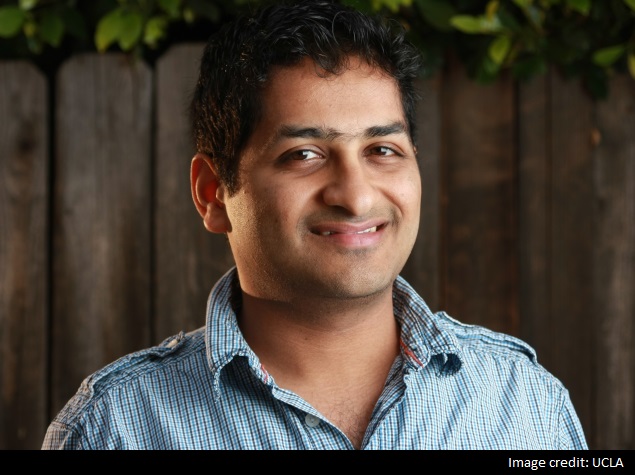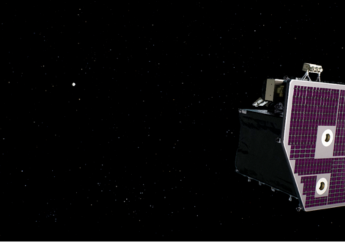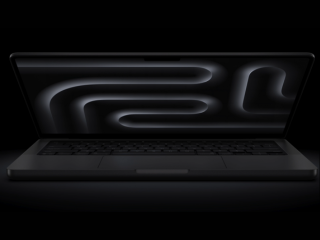- Home
- Science
- Science News
- IIT Delhi Graduate Wins ACM Award for Breakthrough Cryptography Tech
IIT Delhi Graduate Wins ACM Award for Breakthrough Cryptography Tech

He will receive the award presented by the Association for Computing Machinery (ACM) and its $20,000 prize at the annual ACM awards banquet on June 21, in San Francisco. Financial sponsorship of the award is provided by Google.
According to ACM, the innovator of breakthrough cryptography technology won the award for developing tools that enable the first secure solution to the problem of making computer programme code "unintelligible" while preserving its functionality.
This problem, known as software obfuscation, conceals the programme's purpose or its logic in order to prevent tampering, deter reverse engineering, or as a challenge to readers of the source code.
Garg's "approach makes it impossible to reverse-engineer the obfuscated software without solving mathematical problems that could take hundreds of years to work out on today's computers," ACM said.
Garg, a Josef Raviv Memorial Postdoctoral Fellow at IBM T.J. Watson Research Centre, completed his dissertation at the University of California, Los Angeles, which nominated him.
In his dissertation "Candidate Multilinear Maps," Garg described new mathematical tools that serve as key ingredients for transforming a program into a "jigsaw puzzle" of encrypted pieces.
Corresponding to each input is a unique set of puzzle pieces that, when assembled, reveal the output of the programme.
Security of the obfuscated programme hinges on the fact that illegitimate combinations of the puzzle pieces do not reveal anything.
For details of the latest launches and news from Samsung, Xiaomi, Realme, OnePlus, Oppo and other companies at the Mobile World Congress in Barcelona, visit our MWC 2026 hub.
Related Stories
- Samsung Galaxy Unpacked 2026
- iPhone 17 Pro Max
- ChatGPT
- iOS 26
- Laptop Under 50000
- Smartwatch Under 10000
- Apple Vision Pro
- Oneplus 12
- OnePlus Nord CE 3 Lite 5G
- iPhone 13
- Xiaomi 14 Pro
- Oppo Find N3
- Tecno Spark Go (2023)
- Realme V30
- Best Phones Under 25000
- Samsung Galaxy S24 Series
- Cryptocurrency
- iQoo 12
- Samsung Galaxy S24 Ultra
- Giottus
- Samsung Galaxy Z Flip 5
- Apple 'Scary Fast'
- Housefull 5
- GoPro Hero 12 Black Review
- Invincible Season 2
- JioGlass
- HD Ready TV
- Latest Mobile Phones
- Compare Phones
- Apple iPhone 17e
- AI+ Pulse 2
- Motorola Razr Fold
- Honor Magic V6
- Leica Leitzphone
- Samsung Galaxy S26+
- Samsung Galaxy S26 Ultra
- Samsung Galaxy S26
- MacBook Pro 16-Inch (M5 Max, 2026)
- MacBook Pro 16-Inch (M5 Pro, 2026)
- Apple iPad Air 13-Inch (2026) Wi-Fi + Cellular
- Apple iPad Air 13-Inch (2026) Wi-Fi
- Huawei Watch GT Runner 2
- Amazfit Active 3 Premium
- Xiaomi QLED TV X Pro 75
- Haier H5E Series
- Asus ROG Ally
- Nintendo Switch Lite
- Haier 1.6 Ton 5 Star Inverter Split AC (HSU19G-MZAID5BN-INV)
- Haier 1.6 Ton 5 Star Inverter Split AC (HSU19G-MZAIM5BN-INV)
-
 Jockey Now Available for Streaming Online: Where to Watch This Tamil Action Movie Online?
Jockey Now Available for Streaming Online: Where to Watch This Tamil Action Movie Online?
-
 NASA’s Carruthers Observatory Begins Mission to Study Earth’s Hydrogen Halo
NASA’s Carruthers Observatory Begins Mission to Study Earth’s Hydrogen Halo
-
 MacBook Pro (2026) Launched in India With M5 Pro, M5 Max Chips, Up to 16-Inch Display: Price, Specifications
MacBook Pro (2026) Launched in India With M5 Pro, M5 Max Chips, Up to 16-Inch Display: Price, Specifications
-
 MacBook Air With M5 Chip, Up to 15.3-Inch Display Launched in India: Price, Specifications
MacBook Air With M5 Chip, Up to 15.3-Inch Display Launched in India: Price, Specifications











